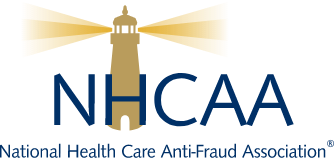Protect Yourself
Health care reform was signed into law by President Obama in March 2010. This historic legislation does several things from creating a high-risk insurance pool to expanding health insurance coverage to millions of Americans. Sadly, scam artists follow headlines closely and are already trying to figure out ways to take advantage of new criminal opportunities.
U.S. Department of Health & Human Services Secretary Kathleen Sebelius sent letters to state Attorneys General and State Insurance Commissioners warning them of health care fraud schemes that may intensify as health care reform goes into effect. One major and immediate concern is the peddling of fraudulent health insurance.
Fake health insurance scams are not new. For several years, the National Health Care Anti-Fraud Association (NHCAA) has seen consumers become victims of unscrupulous individuals purporting to sell health insurance at what appear to be extremely reasonable rates. Often, the rates quoted purport to provide coverage for the entire family and include not only medical care but vision and dental care as well. These individuals may contact you through various means-by telephone, fax, flyers left on your car, or by posting notices on cafeteria and lunch room walls or bulletin boards. NHCAA wants to warn consumers that such solicitations are rarely conducted by legitimate health insurance companies and providing your personal information (Social Security number, bank account numbers, credit card numbers, etc.) may lead not only to financial exploitation but to identity theft as well.
Plus, there are shades of gray between fraudulent health insurance and the real thing. If you don’t take the time to understand what is included under a health plan (or more importantly, what isn’t) before you buy it, you could discover later that coverage is much more limited than you had hoped. And some products that claim to offer insurance coverage actually provide nothing more than discounts.
Legitimate insurance companies must be licensed to sell insurance of any kind with the state Department of Insurance in each state where they sell insurance. Insurance brokers must be licensed as well. Before you consider buying insurance, you should determine if the company or individual selling the insurance policy is properly licensed. State insurance department contact information is available on our Website.
Here are some simple steps to follow to help you avoid being the victim of a health insurance scam:
DON’T
- Don’t buy insurance online or over the phone, based on mailers, fliers or ads without investigating first and clearly understanding what you are buying.
- Don’t respond to high pressure or fear tactics from aggressive salespeople.
- Don’t provide your Social Security number, bank account numbers or credit card numbers before confirming that you are dealing with a legitimate company, and don’t give out personal information over the phone.
- Don’t sign blank insurance claims forms.
- Don’t give blanket authorization to a medical provider to bill for services rendered.
DO
- Do take the time to research any company before purchasing a health insurance policy from it-a few minutes invested in searching the Internet is worth your time.
- Do check with your state’s Insurance Department to make sure the company is licensed to do business.
- Do compare insurance coverage.
- Do document your dealings with any company from which you are considering purchasing insurance.
- Do get a list of doctors and other providers that participate with the insurance plan you are considering.
- Do ask LOTS of questions.
- Do report suspected fraud to your state insurance department.
Below are some resources to help you learn more about the Health Care Reform law, what it means to you and how to protect yourself from being the victim of fraudulent health insurance scams.
- The U.S. Department of Health & Human Services manages a robust website intended to inform consumers about the new law: HealthReform.GOV
- The Obama Administration has created a website which aims to explain the new health reform law: Health Reform: What It Means To You
- To determine if a health insurer is licensed to do business in your state, check with your state’s department of insurance (DOI). Plus, most DOI websites provide information and resources on how to report suspected fraud. Click here for a list of DOI websites.



